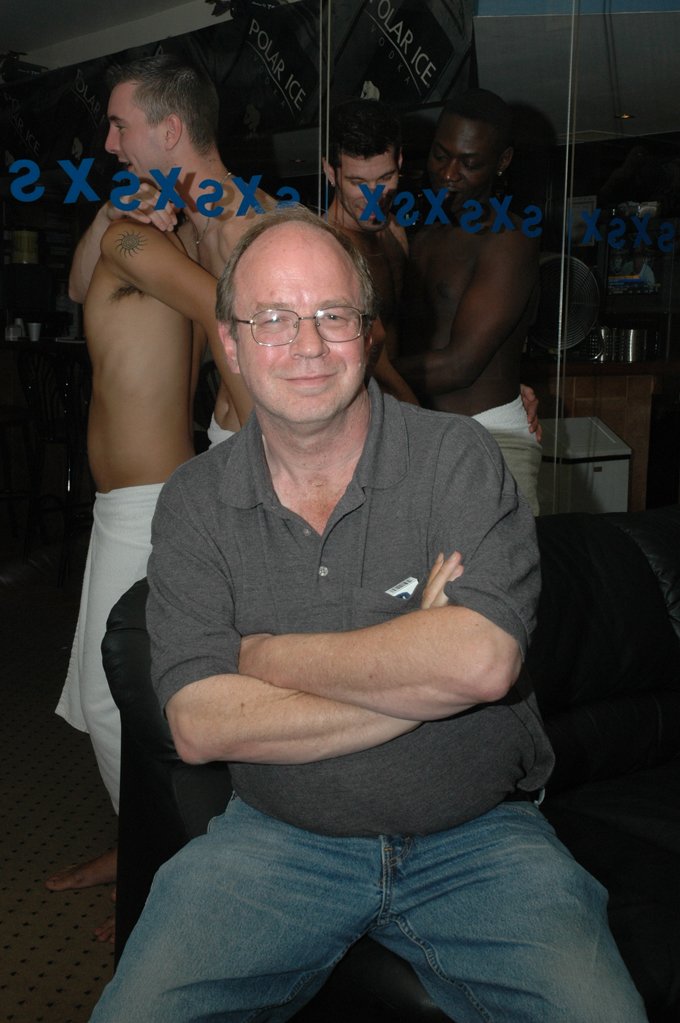On the night of the bathhouse raids in 1981, Peter Bochove watched helplessly as police tore through his beloved Richmond Street Health Emporium. But, out of the rubble and driven by anger, a political activist emerged.
Bochove, who also co-founded Spa Excess and Spa on Maitland, died of lung cancer April 28 at St Michael’s Hospital. He was 65.
“Peter was part of that early group that did so much fighting for gay rights,” says Robert Knight, who opened Spa Excess 16 years ago with Bochove and Michael Dorman. Knight says Bochove’s health has been deteriorating rapidly since January, when he was diagnosed with cancer.
Knight recalls the breathtaking beauty of Bochove’s first bathhouse, the Richmond Street Health Emporium. “It had multiple floors and an expansive atrium looking down into a swimming pool below.”
“It was destroyed completely by police,” Knight says, recalling the night Toronto police launched Operation Soap, which resulted in the arrest of more than 300 men, the largest mass arrest in Canada since the FLQ crisis a decade before. At the time, Bochove was upstairs wearing only a towel.
“The cops went around smashing every door, even though Peter offered to open each door with a key . . . The problem was, Peter was maxed out on his mortgage. He had no money to fix it and was forced to close for good.”
The raids terrified Bochove, whose business suffered the most damage of the four bathhouses hit that night. Under the influence of his friend George Hislop, he became politically active.
Long-time friend and fellow activist James Dubro recalls his fondness and admiration for Hislop, the first openly gay man to run for city council. Dubro says Bochove became president of the Hassle Free Clinic in 2005 after Hislop died, in part as a tribute their friendship. “He was very sensitive and extremely protective of George.”
Dubro calls Bochove a “bathhouse visionary,” a man who channelled his rage into a strong voice advocating for sexual liberation, fighting for the right to privacy and speaking out against police brutality. “Politically, when Peter was taking a public position, he didn’t mince words,” he says. “But in private, he was a very gentle man.”
On the anniversary of the raids in 2011, Bochove was a panellist at a screening of Track Two, a 1982 documentary about the growth of Toronto’s gay community that focused on the the bathhouse raids. At the time, Toronto was still reeling from the G20, and Bochove noted that not much had changed. “I was brought face to face that night with an extremely harsh reality. To that point, I really did believe we lived in a free country. I was wrong. In the 30 years that followed I have had no reason to change my mind on that score,” he said.
The activism that followed the raids galvanized the gay community and changed the course of history, Bochove recalled. “That night I attended the rally that had been called in the intersection of Yonge and Wellesley . . . The intersection was already full and people continued to flow in. The crowd turned into a mass and that mass took over the street. It went from a protest rally to a mass takeover of Yonge St. It was a moment so liberating, so empowering, that it effected real change. That rally helped to focus public opinion on what had happened to us. If the raids were meant to frighten us, the bathhouse riots scared the hell out of those responsible.”
Bochove continued to fight city officials for years, trying to get a licence to build the Spa on Maitland with co-owner Jerry Levy in 1988, Knight says.
But, before they could open their doors, they had to take the city to court and swallow hundreds of thousands of dollars in legal costs. “All because the building commissioner refused to give the Spa on Maitland a building permit, only because he did not like what a bathhouse was. There was nothing illegal about it,” Knight says.
“Even after the judge ordered that Peter be given a permit, that building commissioner continued to refuse. He was willing to go to jail,” Knight says.
By 1990, still with no permit, the city was in contempt of court and would have been on the hook for more than $1 million in damages. That’s when then-councillor Jack Layton forced council to approve Bochove’s permit in exchange for his abandoning the damages. The decision set a precedent of legislative approval for bathhouses in the city, protecting bathhouses from future city harassment.
Ken Popert, president and CEO of Pink Triangle Press, says Bochove was a “classy” and “unpretentious” person who made a big impact on the city’s gay community. “He was one of the few businessmen in the gay community who was also a political activist and often put his money where his mouth was.”
Metropolitan Community Church of Toronto pastor Brent Hawkes was shocked and saddened to hear the news. Hawkes says Bochove was a big supporter of his provincial election campaign in 1995.
“He was a successful businessman in the gay community, and he gave a lot back to this community, both in financial support to many causes and in challenging injustice wherever he saw it, and very loudly too,” he says.
Knight says Bochove was a heavy smoker for most of his life. “He smoked three packs a day. He quit when he was 50 . . . I never saw him without a cigarette. It’s like every breath he took had smoke going in and out.”
Bochove is survived by his partner of 10 years, Chris Brown, who did not want to be interviewed. Knight says there will be no funeral or memorial — just a simple cremation. “That’s what he wanted,” he says.

 Why you can trust Xtra
Why you can trust Xtra


